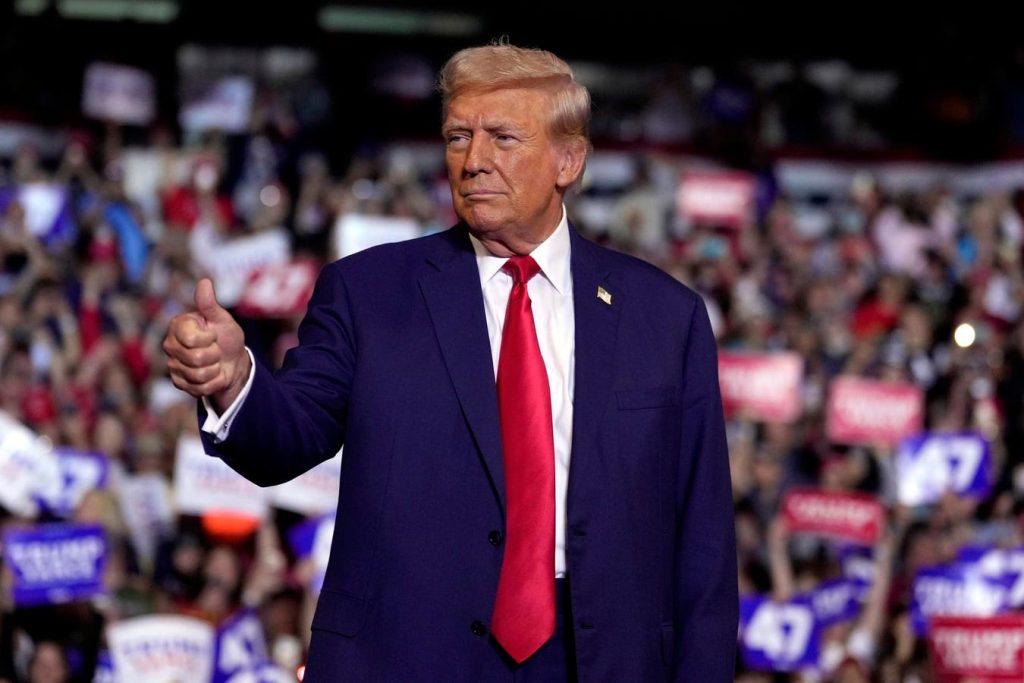Former President Donald Trump is standing by his plan to raise tariffs on imported goods, despite criticism from Vice President Kamala Harris and economists who believe that it will increase prices for everyday consumers. Trump has proposed increasing tariffs, or taxes on imported goods paid by businesses, if he is reelected, with a focus on punishing countries that he believes are taking advantage of the United States. While he has not specified a policy, he has suggested raising tariffs by 10% or increasing them by 60% on goods from China.
Harris criticized Trump’s plan, calling it a “national sales tax” that would burden consumers with higher prices on basic goods. Most experts agree that tariffs ultimately lead to higher prices for consumers, with U.S. businesses and consumers bearing the cost of previous tariffs imposed during Trump’s first term. Economists at Goldman Sachs project that consumer prices could increase by 0.1% for every percentage increase in the effective tariff rate, leading to higher inflation rates for a year.
The economic impact of Trump’s proposed tariff plan is expected to be negative, with experts predicting decreased consumer spending, rising unemployment rates, and slower economic growth. Moody’s projected that the plan could result in a reduction of 675,000 jobs and increase the unemployment rate by 0.4%, potentially leading to a recession. The Peterson Institute for International Economics estimated that Trump’s tariffs could cost middle-class U.S. households $1,700 per year and reduce after-tax income for lower-income households by 3.5%.
Trump’s spokesperson defended the tariff proposal, stating that it would create jobs and bring money back to the U.S. from China. However, critics argue that the plan would have a detrimental impact on the economy and lead to job losses. It remains to be seen what a final tariff proposal from Trump would look like, as he has suggested tariffs of between 10 and 20% on imported goods. The response from other countries to potential tariff increases is also uncertain, with fears of retaliatory tariffs and destabilizing effects on financial markets.
While Harris has criticized Trump’s tariff plan, the Biden administration has kept many of the Trump-era tariffs in place and imposed new tariffs on Chinese imports. The ongoing debate over tariffs underscores the complexity and political considerations involved in trade policy decisions. Trump’s history of using tariffs as a trade tool dates back to his first term, where he implemented tariffs that sparked a trade war with China. The ongoing dispute between Trump and Harris over tariffs reflects broader differences in economic policy approaches and priorities.


